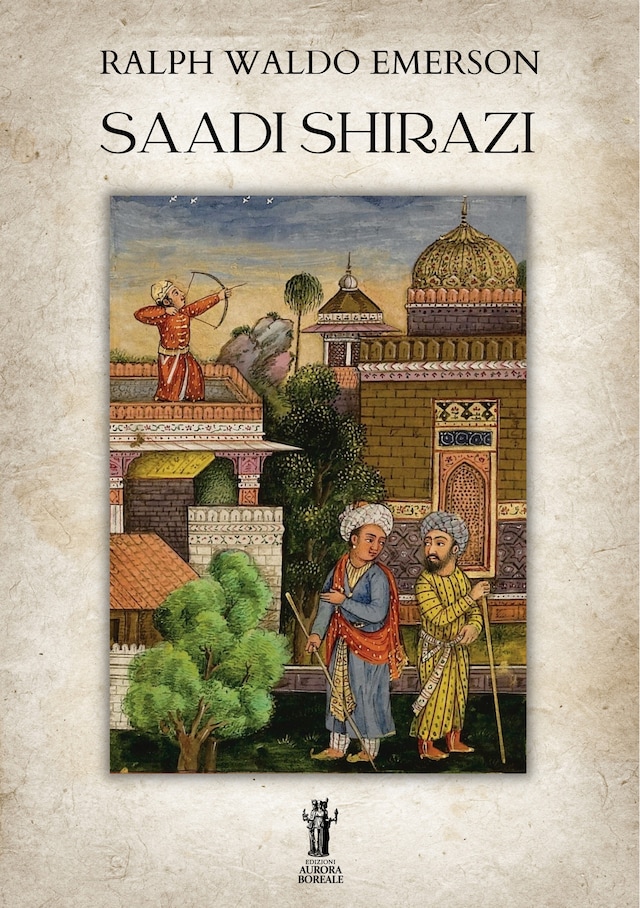
Saadi Shirazi
Description of the book
Ralph Waldo Emerson (1803-1882) was an American philosopher essayist, lecturer, and poet, who led the Transcendentalist Movement of the mid-19th century. He was seen as a champion of individualism and critical thinking, as well as a prescient critic of the countervailing pressures of society and conformity. Friedrich Nietzsche considered him «the most gifted of the Americans», and Walt Whitman referred to him as his «master».
Emerson wrote on a number of subjects, never espousing fixed philosophical tenets, but developing certain ideas such as individuality, freedom, the ability for mankind to realize almost anything, and the relationship between the soul and the surrounding world.
In 1864 Emerson published an essay dedicated to the great Persian poet Saadi Shirazi in the periodical The Atlantic Monthly. Saadi Shirazi was the major Persian poet and prose writer during the Middle Age. He is widely recognized as one of the greatest poets of the classical literary tradition, earning him the nickname “Master” or “Master of Speech”. He has been quoted in the Western traditions as well, sand his Bustan is universally considered one of the houndred greatest books of all time.
Emerson was very interested in Sadi’s writings, contributing to some translated editions himself. Emerson, who read Saadi only in translation, compared his writing to the Bible in terms of its wisdom and the beauty of its narrative.
«The Persians have been called "the French of Asia"; and their superior intelligence, their esteem for men of learning, their welcome to Western travellers, and their tolerance of Christian sects in their territory, as contrasted with Turkish fanaticism, would seem to derive from the rich culture of this great choir of poets, perpetually reinforced through five hundred years, which again and again has enabled the Persians to refine and civilize their conquerors, and to preserve a national identity. To the expansion of this influence there is no limit; and we wish that the promised republication may add to the genius of Saadi a new audience in America».
 Ralph Waldo Emerson
Ralph Waldo Emerson 18 Pages
18 Pages